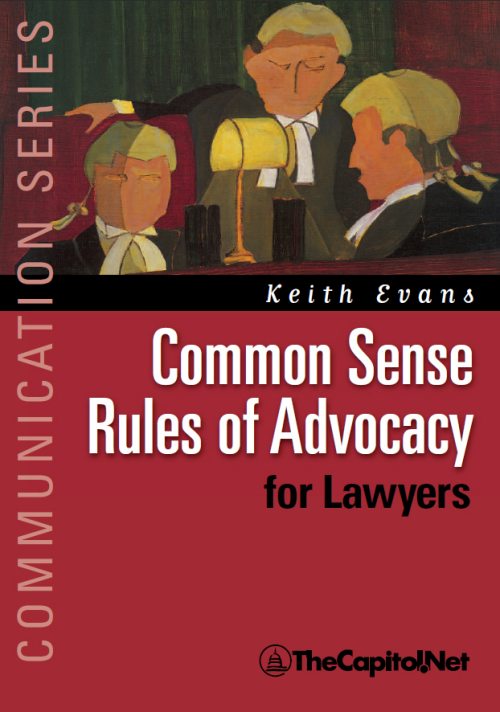As an advocate, particularly in a courtroom setting, it is important to think out in advance the answer you want to hear and then design your questions to present a view toward obtaining that desired answer.

Ultimately, you are seeking an answer that favors your position. And a big part of your job is to control what is said and how it is said.
You must give proper time and consideration to knowing precisely what you want to be said, in advance. Once you know what it is that you want to be said, the next step is to arrive there by asking a series of questions. Slowly, question by question, it is possible to lead the audience to the desired conclusion. Each question within the series should be designed to obtain the individual answer that you want.
The goal is to get the audience to agree to several points and then as a consequence to agree to the final point. In order to be effective, you must have a clear understanding in advance of what those points will be. You must know what it is that you want the audience to agree with.
Every question is an objective and each series of  questions leads you to the answer or conclusion you desire. Once you obtain the answer that you desire to a question, you move on to the next question. After you know your ultimate objective it is then possible to break that objective down to individual objectives so you can work on them one by one. The best way to approach this strategy is by thinking “if this, then that.”
questions leads you to the answer or conclusion you desire. Once you obtain the answer that you desire to a question, you move on to the next question. After you know your ultimate objective it is then possible to break that objective down to individual objectives so you can work on them one by one. The best way to approach this strategy is by thinking “if this, then that.”
Another approach would be to look at it as “if such and such, then so and so.” Make a point to design your questions to that you can bring out the desired conclusion and then invite the audience or the witness to agree with what must naturally follow as a result.
By using this strategy, your solution will seem to be irresistible to the audience. They will have followed you through every single step and will have seen the way you reach your objectives. It will then be natural for them to agree with you.
Reference: Common Sense Rules of Advocacy for Lawyers, by Keith Evans, Chapter 3 The Mandatory Rules of Advocacy, Rule 57: Think Out in Advance the Answer You Want to Hear and Design Your Questions With a View to Getting That Answer.
For more than 40 years, TheCapitol.Net and its predecessor, Congressional Quarterly Executive Conferences, have been teaching professionals from government, military, business, and NGOs about the dynamics and operations of the legislative and executive branches and how to work with them.
Our custom on-site and online training, publications, and audio courses include congressional operations, legislative and budget process, communication and advocacy, media and public relations, testifying before Congress, research skills, legislative drafting, critical thinking and writing, and more.
TheCapitol.Net is on the GSA Schedule, MAS, for custom on-site and online training. GSA Contract GS02F0192X
TheCapitol.Net is now owned by the Sunwater Institute.
Teaching how Washington and Congress work ™

